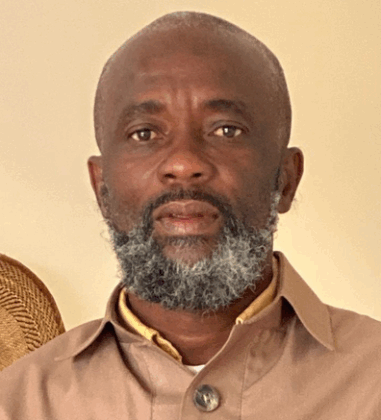“One who causes others misfortune also teaches them sense.” – African proverb
Whilst reflecting on his social isolation experiments on ‘the mother-infant attachment’ research, Harry Frederick Harlow, the American psychologist asserted that “If monkeys have taught us anything, it’s that you’ve got to learn how to love before you learn how to live.”
His assertion entreats us to reconsider the chicken-and-egg paradoxical challenge many of us use as an excuse not to get things done right.
It is true that some complexities around us come along with interdependent variables that impact each other in a continuous loop, making it almost impossible to determine which caused the other.
But that should not stop us from seeking the causalities that trigger our challenges and eliminate them if need be.
Whilst the chicken-and-egg paradox epitomises the idea that every entity or effect has a singular, prior cause, and that the causes and effects coexist in interdependent loops that create a circular dependency, it overlooks the systemic dynamics that are at play in the ecosystem.
We know from many studies that causality is rarely linear. As a matter of fact, life is not a series of disconnected ‘oware’ sets, but a dynamic ecosystem of interacting forces.
It is a dance of forces at play at every point in time. Thus, tracing the origin of challenges as the chicken-and-egg paradox suggests cannot provide us with holistic solutions.
For example, many experts striving to provide a solution for the challenge of poverty on the African continent have focused on corruption as the causal effect. This oversimplification has contributed in part to them missing out on a holistic solution.
It is not surprising the chorus they have mainly sang is, punish the corrupt individuals. Interestingly, we have witnessed how some efforts in that direction have even driven corruption underground, making it harder to detect.
This is because their approach was linear, like a chicken-and-egg paradox, which ignores the interconnected forces at play within the ecosystem. Poverty, like all other challenges, must be addressed systematically.
We need an appreciation that looks at the world as a living system to be understood and nurtured, and not as a puzzle to be solved. Often, our chicken-and-egg mentality pushes us to break things down, instead of understanding the relationships between them.
We must learn to listen to the music of these interactions, and not just dissect the notes. That way we can shift from asking “What caused this?” to “How does this persist?
This would challenge us to focus and emphasize our interconnectedness and thus nurture a positive mindset that empowers us to unlock our creativity and enable us to develop sustainable solutions.
Our history has taught us and continues to teach us that solutions that target only one side of the loop would always fail to disrupt the cycle. Now we need to channel our energies into identifying all factors and their interactions, to understand challenges as
interconnected networks rather than isolated events. We need to take a deep dive into the currents to harvest whispers of truth that drift unseen.
That attitude would help us to question our assumptions and seek new and evolutionary pathways that would make us treat challenges as opportunities for stamping our creative ideals upon them.
Our interdependence means that everything is connected to all other things in ways that are not easily noticeable. It is the reason simplification remains a dangerous approach and why we must remain ‘students’ all our lives.
We should tackle challenges as learning points to help us appreciate the impact of the various elements on the ‘whole’ and on the other parts or elements on the individual level.
Many challenges are more complex than they appear. The way their impacts arise from their interactions cannot be easily predicted by studying them as individual parts. It would take a holistic study to break them down.
The nature of complex challenges is such that they resist reductionist thinking. That is why we need to do away with the chicken-and-egg mentality.
Life is a self-reinforcing cycle. Working in it, and on it, requires us to redesign the algorithms, instead of just moderating its contents. Often when we intervene on a part, it can create unexpected effects elsewhere.
For example, many are calling for the ban of plastic bags. What they forget is that it would lead to an increase in the use of paper bags, which have a larger carbon footprint.
The oversimplifications of our solutions in the past have saddled us with more challenges than when we started. At other times, we have struggled to adapt new and holistic solutions because the past decisions have created trajectories that are hard to reverse.
Our dependence on fossil fuel is entrenched due to the infrastructure we have. Transitioning to renewables would require a change in our infrastructure, which would come at a huge cost. Let us therefore strive to address all the factors in the ecosystem, and not just one cause when tackling challenges.
__________________________________________________________________
Kodwo Brumpon is an executive coach at Polygon Oval, a forward-thinking Pan African management consultancy and social impact firm driven by data analytics, with a focus on understanding the extraordinary potential and needs of organisations and businesses to help them cultivate synergies, that catapults into their strategic growth, and certifies their sustainability.
Comments, suggestions, and requests for talks and training should be sent to him at [email protected]










